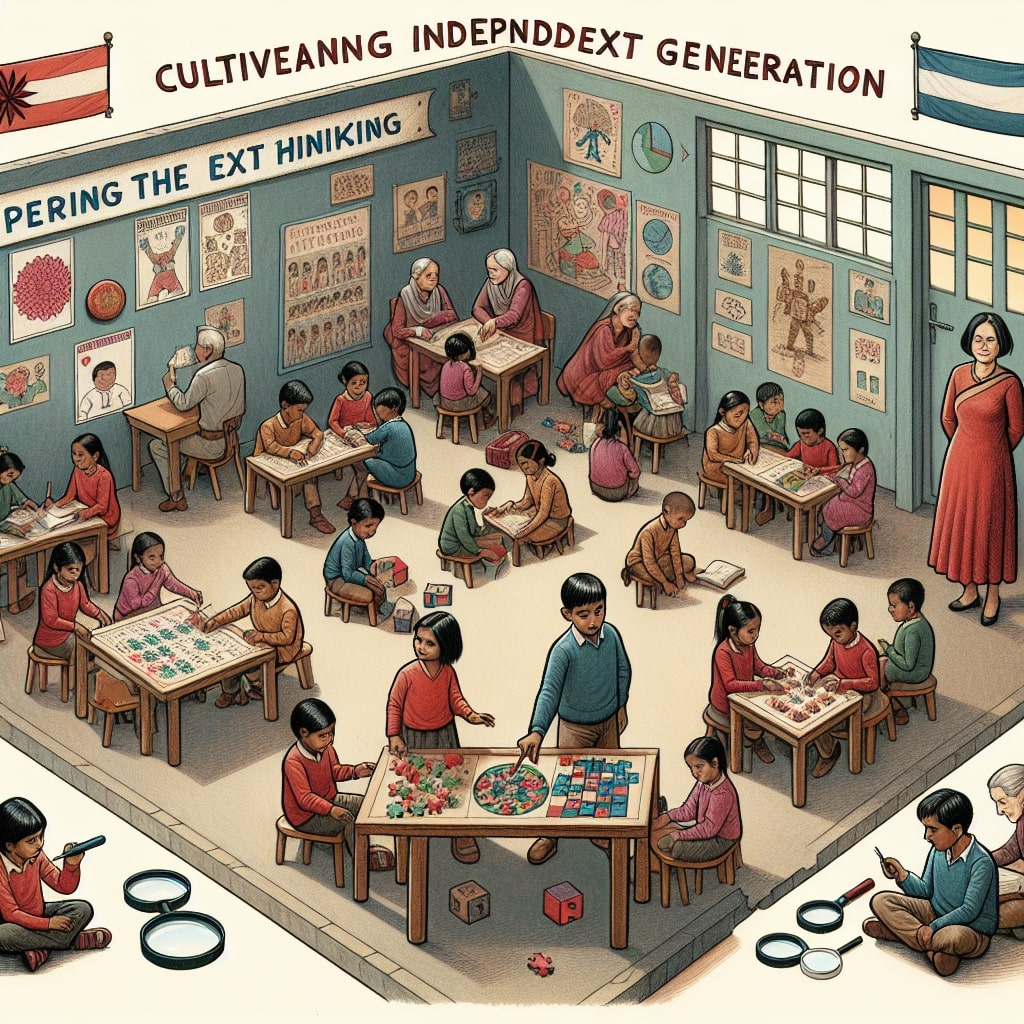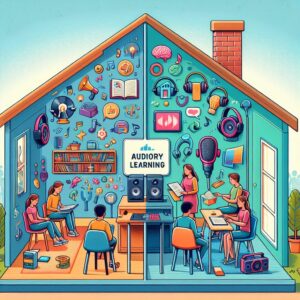In today’s rapidly changing world, fostering independence and empowering the next generation to take charge of their own future has never been more critical. By cultivating critical thinking, self-reliance, and resilience, we can prepare young minds to navigate a complex world with confidence and purpose. This article delves into nurturing independent minds and highlights actionable steps to empower the leaders of tomorrow.
The Importance of Independent Thinking in the Modern Era
In an era dominated by technology and information overload, the ability to think critically and independently is essential. Independent thinking encourages problem-solving skills, creativity, and the capacity to analyze situations without undue reliance on external opinions. For the next generation, this skill is invaluable as it equips them to handle challenges effectively and make informed decisions.
Key Benefits of Fostering Independence in Young Minds
- Critical Decision-Making Skills: Encouraging children and young adults to evaluate situations independently teaches them to weigh the pros and cons before arriving at a solution.
- Confidence and Self-Reliance: Independent minds grow confident in their abilities and learn to trust their instincts when navigating unfamiliar situations.
- Enhanced Creativity: When children have the freedom to explore ideas, they develop innovative problem-solving skills that help them succeed in various environments.
Actionable Ways to Cultivate Independent Thinking
- Encourage Open-Ended Questions: Ask children questions that require them to think deeply, analyze, and provide thoughtful responses.
- Provide Opportunities for Exploration: Give them the tools and freedom to experiment, whether in academics, hobbies, or social activities.
- Model Independence: Demonstrating self-reliance and critical thinking as a role model will inspire the next generation to emulate these traits.
Fostering independence goes beyond academics; it involves nurturing well-rounded individuals who are confident, capable, and innovative.
Empowering the Next Generation with Resilient Minds
The ability to adapt and persevere is a cornerstone of empowerment. Resilience enables individuals to bounce back stronger when faced with adversity, making it a crucial skill for the next generation in today’s unpredictable world.
Building Emotional and Mental Strength
Resilience is not innate; it can be cultivated through intentional efforts. Empowering children with the tools they need to manage stress and setbacks ensures they grow into emotionally and mentally strong adults.
- Teach Emotional Regulation: Encourage mindfulness techniques like deep breathing, journaling, or meditation to help children cope with stress.
- Promote a Growth Mindset: Instill the belief that challenges and failures are opportunities for growth and learning.
- Provide a Supportive Environment: A nurturing environment, filled with encouragement and understanding, helps young minds feel secure and confident in their abilities.
Why Empowerment Starts Early
The earlier we begin nurturing independence, the greater the impact we have on shaping well-balanced individuals. Empowerment in childhood fosters a love of learning, promotes curiosity, and builds a strong foundation for future success.
By combining resilience training with independence, we provide the next generation with a toolkit to handle life’s inevitable hurdles. The goal is not to shield them from difficulties but to equip them with the strength to overcome them.
Practical Strategies for Raising Empowered Individuals
Empowering the next generation requires a deliberate approach involving education, mentorship, and exposure to real-world experiences. Here are some practical strategies to consider:
1. Prioritize Education Beyond Textbooks
Traditional schooling is vital, but education should extend beyond the classroom. Encourage learning through experiences, from attending workshops and internships to engaging in community service. Teaching life skills like financial literacy, communication, and time management ensures children are prepared for the real world.
2. Foster Leadership Opportunities
Leadership opportunities, whether through clubs, sports teams, or volunteer projects, allow young individuals to learn responsibility, teamwork, and initiative. Such experiences help them develop the confidence needed to take charge and influence positive change.
3. Encourage Healthy Risk-Taking
Risk-taking fosters growth when done within a supportive framework. Allow children to step out of their comfort zones, try new activities, and embrace unfamiliar challenges. Learning to navigate uncertainty strengthens their decision-making skills.
4. Leverage Technology Wisely
Technology can be a powerful tool for learning and self-expression when used responsibly. Introduce children to educational resources, coding platforms, or creative tools that encourage skill development while limiting overconsumption of entertainment or social media.
Key Takeaways
- Critical Thinking: Cultivate critical and independent thinking to prepare young minds for complex problems.
- Resilience: Equip them with emotional and mental tools to adapt gracefully to life’s challenges.
- Leadership and Life Skills: Focus on practical education, leadership, and real-world experiences for holistic development.
- Mentorship and Role Modeling: Lead by example and act as mentors to inspire self-reliance and confidence.
Frequently Asked Questions
1. Why is independence important for children?
Independence fosters decision-making, self-confidence, and problem-solving skills in children. It helps them become competent individuals capable of handling challenges effectively.
2. How can parents support independence at an early age?
Parents can encourage independence by creating opportunities for exploration, allowing children to make decisions within safe boundaries, and teaching them to learn from minor failures.
3. What role does education play in empowering the next generation?
Education provides critical knowledge, life skills, and exposure to real-world challenges. It is a gateway to freedom, empowering young minds to think innovatively and face the future with confidence.
By nurturing independent minds and empowering young individuals to take ownership of their aspirations, we lay the foundation for a brighter, more innovative, and inclusive future. Let’s champion and invest in the next generation today!










